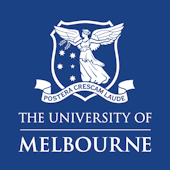Zebedee Nicholls is a Research Fellow at Melbourne Climate Futures, The University of Melbourne and The International Institute for Applied Systems Analysis (IIASA). His research focuses on the development, evaluation and application of reduced complexity models with a particular focus on the Model for the Assessment of Greenhouse gas Induced Climate Change (MAGICC). Alongside A/Prof Malte Meinshausen, he leads the Reduced Complexity Model Intercomparison Project (RCMIP). To facilitate this work and enhance reproducibility, he is committed to developing open-source scientific software and contributes to a number of projects (see github.com/znicholls and gitlab.com/znicholls). In the IPCC’s Sixth Assessment Report, he led the writing of Cross-Chapter Box 7.1 on reduced complexity models used for scenario classification in AR6, was a Contributing Author to WG1 Chapters 1, 4, 5, 6, 7 and Technical Summary and WG3 Chapter 3 and Annex C. He is currently working on the next phase of RCMIP, taking MAGICC open source and developing more regionally detailed emulators.
Experience
-
2021–presentResearch Fellow, University of Melbourne
-
2021–presentResearch Fellow, International Institute for Applied Systems Analysis (IIASA)
-
2016–2021PhD Researcher, University of Melbourne
Education
-
2016University of Oxford, Masters of Physics
Publications
-
2020Implications of non-linearities between cumulative CO2 emissions and CO2-induced warming for assessing the remaining carbon budget, Environmental Research Letters
-
2020The shared socio-economic pathway (SSP) greenhouse gas concentrations and their extensions to 2500, Geoscientific Model Development
-
2019A new scenario logic for the Paris Agreement long-term temperature goal, Nature
-
2018Cloud, precipitation and radiation responses to large perturbations in global dimethyl sulfide, Atmospheric Chemistry and Physics
-
2017A modified impulse-response representation of the global near-surface air temperature and atmospheric concentration response to carbon dioxide emissions, Atmospheric Chemistry and Physics
- Melbourne, Australia
- Website
- @NichollsZeb
- Article Feed
- zebedee.nicholls@climate-energy-college.org
- ORCID
- Joined


